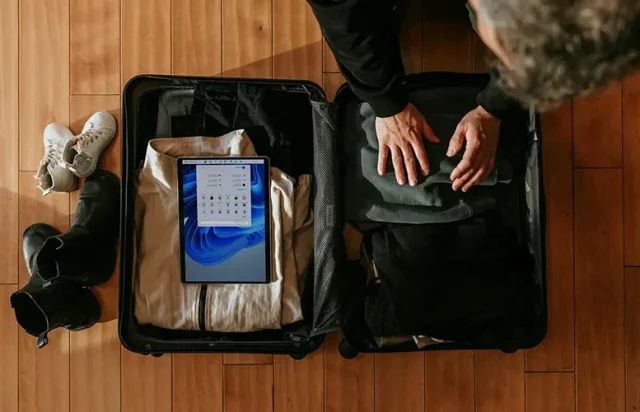
Embarking on a trip abroad is more than just an opportunity to explore new landscapes; it’s a profound journey that broadens your horizons, introduces you to diverse cultures, and enhances personal growth. Whether you’re planning to study, volunteer, or simply travel to a foreign country, the experience promises to be one of the most exciting chapters in your life. However, such adventures require careful planning and preparation. From understanding cultural norms to managing logistical details, the key to a successful trip lies in your readiness to step into the unknown. This article will guide you through everything you need to know to prepare for your journey, ensuring you make the most out of your international experience.
Researching Your Destination
Before you set foot on a plane, your journey begins with thorough research about your destination. Gaining a deep understanding of the country’s cultural, political, and social dynamics is crucial. Start by exploring the history, local customs, and social etiquette to ensure you respect and blend in with the local culture. For instance, something as simple as the appropriate dress code can vary significantly from one country to another and could be crucial in how you are perceived.
Academic travelers, such as students planning to study abroad, should seek out resources that offer insights into the educational system and student life in the host country. Engaging with forums or social media groups where past and current international students share their experiences can be incredibly beneficial. Additionally, consulting the best writing paper service for tips on how to communicate effectively in academic assignments abroad can save you from cultural miscommunications and enhance your scholarly work.
Government travel advisories and reputable travel blogs offer up-to-date safety information and travel tips that are indispensable for any traveler. Official tourism websites are also a treasure trove of information, providing details on everything from public holidays to local festivals that you might not want to miss.
Managing Travel Documentation
Handling travel documents is perhaps one of the most critical steps in your travel preparation. Start by ensuring your passport is valid for at least six months beyond your planned return date. Many countries require this as a part of their entry conditions. If you need a new passport or must renew your existing one, apply well in advance to avoid any last-minute hassles.
Next, research visa requirements for your destination. Depending on the purpose of your visit and the length of your stay, the type of visa you need can vary. For example, student visas typically require proof of enrollment in a recognized educational institution, financial stability, and sometimes a health check-up. Visiting the official embassy or consulate websites of the destination country will provide the most reliable visa information.
Always make multiple copies of your important documents like your passport, visa, travel insurance policy, and any medical prescriptions. Keep one set with you in a separate location from your originals and leave another with someone you trust back home. In the age of digital technology, having digital copies accessible in your email or a secure cloud storage is also a wise precaution.
This stage of your preparation not only ensures that you comply with international travel regulations but also prepares you for any unexpected situations. Losing a passport or encountering legal misunderstandings while abroad can be daunting, but having the right documents can simplify resolutions and reduce stress during such events.
Health and Safety Preparations
Your health and safety are paramount when traveling abroad, especially in regions that may expose you to unfamiliar environmental or health risks. Start by visiting a travel clinic or your healthcare provider to discuss necessary vaccinations and health precautions based on your destination. Some vaccines require administration weeks or even months ahead of your departure, so planning this early is essential.
Additionally, obtaining comprehensive travel insurance is crucial. This insurance should cover medical emergencies, evacuation, and, if necessary, repatriation. Familiarize yourself with the healthcare system of your destination country and identify hospitals or clinics that are recommended for foreigners. It’s also wise to register with your country’s embassy upon arrival, providing them with your itinerary in case of emergencies. Understanding local laws and safety norms can also significantly enhance your security. Always keep local emergency numbers handy on your phone and written down in your travel documents.

Financial Planning
A well-thought-out budget is your best tool for managing your finances abroad without unpleasant surprises. List all potential expenses, including accommodations, daily meals, transportation, and some funds for entertainment and souvenirs. Look into the cost of living in your destination to estimate daily expenses accurately.
When it comes to accessing your money abroad, it’s practical to have a mix of cash and access to funds through international banking. Inform your bank of your travel plans to avoid any security blocks on your accounts while abroad. Consider applying for a credit card with no foreign transaction fees or obtaining a prepaid travel card. It’s also helpful to have a small amount of local currency before you arrive to cover immediate expenses like transportation from the airport.
Packing and Logistics
Packing effectively for a trip abroad requires a balance between preparedness and simplicity. Focus on essentials that match the climate and cultural norms of your destination. If you’re traveling to multiple climates, versatile layers that can be mixed and matched are invaluable. Remember to leave some room in your luggage for items you might want to bring back.
For those who are studying abroad, such as nursing students, it might be necessary to bring specialized materials, including medical textbooks or equipment. In such cases, checking luggage restrictions and planning logistics for heavier items is essential. Additionally, if you need help with a nursing assignment while abroad, there are online services available that can provide you with the resources and guidance you need to succeed in your studies without carrying all your heavy books.
In terms of technology, pack any necessary adapters or chargers compatible with your destination’s electrical outlets. Downloading apps that assist with language translation, local navigation, and public transportation can also significantly ease your daily activities. These tools not only help you stay connected but also enhance your independence and enjoyment of the new environment.
Conclusion
Preparing for a trip abroad is an exciting process that sets the foundation for a memorable and enriching experience. By thoroughly researching your destination, managing essential documentation, preparing for health and safety, planning your finances, and packing wisely, you can focus more on the incredible experiences ahead and less on potential setbacks. Whether you’re going abroad for education, volunteering, or leisure, each step you take in preparation brings you closer to a successful and transformative journey. Embrace the adventure with an open mind and adaptable spirit, ready to absorb everything that comes your way. This isn’t just a trip; it’s an opportunity to grow, learn, and explore the vast tapestry of global cultures.





